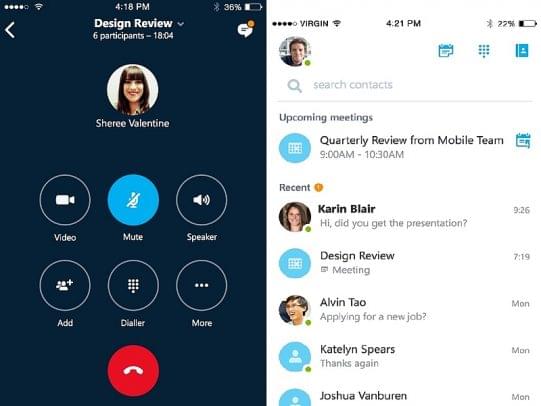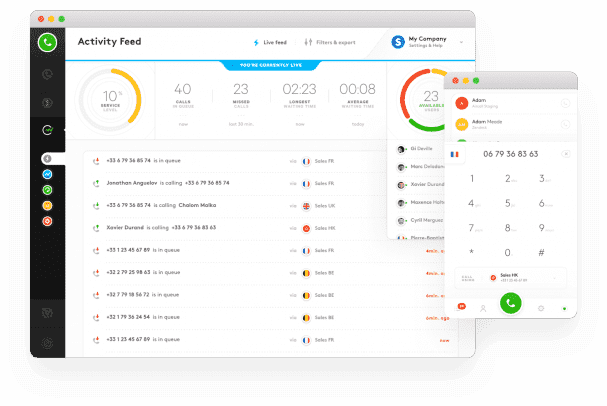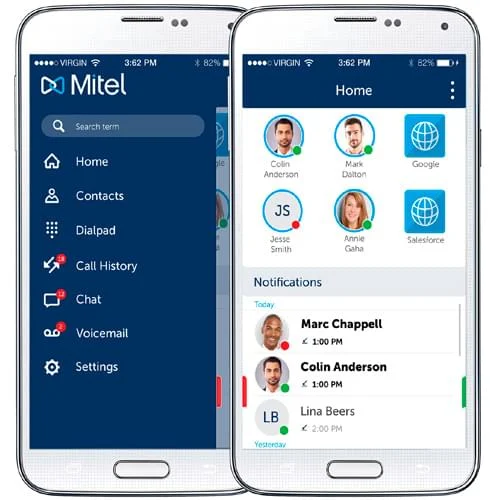Why Use VoIP for Business
Jacques du Rand 2021-06-30
Many businesses take the VoIP protocol for granted in lieu of having a fixed, more stable telephone line.
Contrary to this belief, remote working has perhaps made it an even more prominent and necessary business requirement than before.
What is VoIP
Voice over Internet Protocol (VoIP) is a technology that allows one to make phone calls over the internet as opposed to using a landline. It may feel familiar to you as we use this technology every time we make a WhatsApp call.
Utilizing VoIP technology, however, allows you to make calls to more than just your WhatsApp contacts. You can make calls to landlines, mobile phones, or computer-to-computer - anywhere in the world!
In addition, it is not only for audio calls anymore. You can also use it for video calls, conference calls, call waiting, instant messaging and even file sharing.
Benefits of Using VoIP
There are many benefits for businesses to switch to VoIP technology.
The biggest benefit is probably the cost savings VoIP brings as opposed to using a landline. The second biggest benefit, which became a lot more prominent during lockdown, is that it also offers a mobile solution in addition to static or office based procut options - in other words, unlike a landline it is not only available in your office.
- Lowest Cost Per Call - with VoIP, you pay only for your internet connection. Calls made on the VoIP phone system - even international calls - are free. If you're travelling, you can also hop onto your airport, coffee shop or hotel wifi and use the system.
- Mobility - All you need is a decent data connection. Employees who work remotely or travel are able to stay connected using a single system. VoIP systems enable your entire communications network to be streamlined (whether in one office, remote or internationally), operating from a central point, drastically reducing or eliminating the challenges that can arise from traditional communications systems.
- Portability - One number no matter where you are. VoIP numbers are virtual (cloud-based) so you can use the same number wherever you go. Now clients and staff are able to easily connect as the number (or extension) does not change, no matter where you are, even if your business headquarters moves premises.
- Scalability - This is especially great for businesses that make use of call centers to service their clients. In periods of high demand, the business can easily scale staff without having to purchase additional telephones, lines or hardware.
- Easy to Install - VoIP installation requires little technical know-how.
Who Should Use VoIP
VoIP technology only became legal for more than business use after 2005 in South Africa. As the technology was fairly limited in the early years (only voice calls to other VoIP users) and South Africa only offered ADSL, not many businesses thought it was worthwhile to switch away from a fixed landline.
As the technology has grown over the years to offer so much more than audio calls, and, South Africa finally got fibre, it has become a serious contender. Even more so since the pandemic lockdown where staff were forced to work remotely and many businesses suffered from their rigid systems.
VoIP now offers a complete business and communications network no matter where you, your clients, or your employees are.
The most obvious answer to who should use VoIP for business is most certainly any business that operates nationally and offers some type of call center. There are so many benefits and use-cases; some industries that stand out, include:
- Customer service call centers.
- Real estate agents that operate nationally.
- Law firms.
- Financial institutions.
- Schools.
3 Mobile VoIP Business Apps Options
Some businesses prefer the whole physical phone system - which works great if your employees are in the office.
When your employees are working remotely, or travelling they can use a mobile VoIP service on their phone with the addition of mobile VoIP software.
Just like office-based VoIP, mobile VoIP uses the internet to provide team members with a communications solution that's non-reliant on cellular or landline-based networks. Wherever an internet connection can be found, a mobile phone user will be able to stay productive with VoIP.
- Skype
Connect

Skype is a trusted business tool that can be used for free across devices. Skype Connect is the company's VoIP offering with features including screen sharing, audio & video calls, conference calls and of course instant messaging and telephony.
Price - Skype Connect integrates with existing VoIP or PBX systems. The product is free, however to make calls you purchase credits to your own, required value.
- Aircall

Possibly one of my favourites as it is so user-friendly. It offers an all-in-one solution through their Chrome extension, desktop app, and mobile VoIP app. Their apps also integrate with CRM systems like Hubspot, Salesforce, and Zendesk.
Aircall is a cloud-based provider, and the provided phone numbers can be used on any device. Phone calls are also recordable so managers can use them for coaching purposes.
Price - Aircall is a premium offering, starting from $30/user per month.
- Mitel
- MiCloud Connect

MiCloud Connect's architecture is built on Google Cloud. Users can talk, text, and file share on almost any device platform. It has some great features and is fast becoming a really great option. Additional settings include users being able to change the access settings, view calendar events, check out the recent call log, or message colleagues. The in-call UI lets you place calls on hold, silence calls, or even merge calls to create a conference call.
Price - Pricing starts from $20.99 per user per month.
VoIP System Costs & Options
Fibre Tiger is proud to partner with some great VoIP product providers. We will offer a combination of in-office VoIP systems as well as in-office-mobile compatible products.
- WebAfrica
Voice
A pretty cool option that gives you two options. WebAfrica will either supply you with a free unique 087 number, or you can make use of your existing landline number (such as your Telkom voice line). (And they port that Telkom line for you for FREE away from Telkom too ;) )
Price:
- For Voice only, ranges from as little as R50 per month.
- For Voice & Phone, from as little as R50 per month plus a once-off fee of R1579.
VoIP and Load Shedding
Being in South Africa, we need to have a special note for power outages. VoIP is dependent on your internet connection. If your connection goes down, so does your VoIP.
Most systems do cater for call-forwarding (to any other device) and voice-mail should you not have a back-up plan. The good news is that there are some really simple ways to combat this and to ensure you stay available, even throughout load shedding. The most cost effective way to keep your system from going down, is to install a UPS or other battery backup system for your router and ONT device.
The key to VoIP call quality is a robust connection with good bandwidth.
If you're interested in potentially switching your communication system to VoIP, get in touch with Fibre Tiger to help you create your ultimate VoIP set-up.

